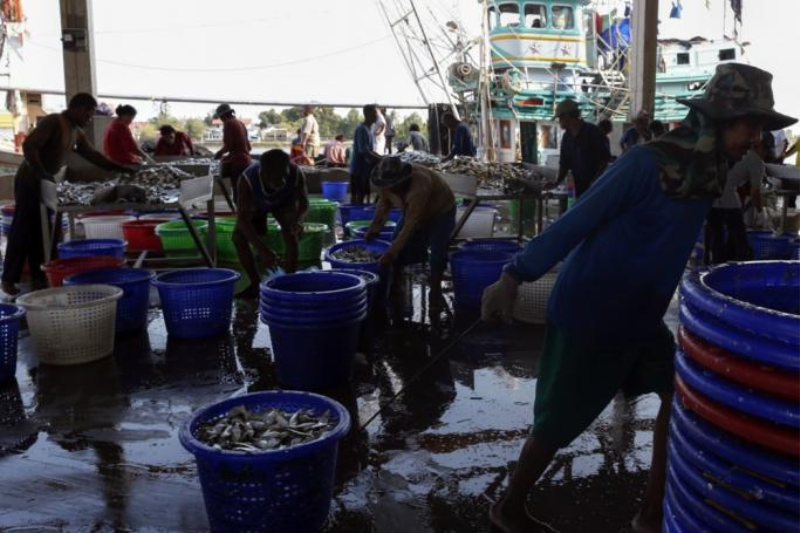
myanmar migrant workers advised not to participate in political rallies in thailand
As Thailand grapples with its political landscape, the situation has implications for migrant workers, especially those hailing from neighboring Myanmar. Amidst the rising tensions and challenges faced by the migrant community, authorities have issued a warning advising them to refrain from participating in political rallies to avoid potential legal repercussions.
Daw Moe Sandar Myint, a chairman of the Federation of General Workers Myanmar (FGWM), believes migrant workers are mentally ready to participate in Thailand’s politics. But practically, it is difficult to participate due to Thailand’s rules and regulations. As per, Thailand’s constitution, foreigners are forbidden from participating in protests. And if they do, they can face up to five years in prison.
In the past couple of months, Thailand has witnessed protests and political demonstrations. These rallies, while essential in exercising democratic rights for Thai citizens, have placed migrant workers in a vulnerable position. Authorities fear that their involvement in such events could exacerbate existing tensions and potentially lead to complications in diplomatic relations between Thailand and Myanmar.
Migrant worker support organizations and human rights advocates have expressed concern over the rights and freedoms of these vulnerable individuals. The migrants, though residing and working in Thailand, often live on the fringes of society, with limited access to legal resources and information. They face significant language barriers, making it challenging to understand their rights and responsibilities fully.
Keep Reading
One of the pressing challenges that migrant workers face is the lack of legal recognition and protection. Many toil in sectors such as agriculture, construction, and manufacturing, and they often endure subpar working conditions, long hours, and meager wages. Due to their status as
non-citizens, they are more susceptible to exploitation and abuse by unscrupulous employers who capitalize on their vulnerable position.
Access to essential services, such as healthcare and education, is another uphill battle for these workers. Even though some progress has been made over the years to improve their access, language barriers, bureaucratic red tape, and social prejudices continue to hinder their full integration into society.
Furthermore, the uncertainty of legal status creates a climate of fear, making it challenging for migrants to assert their rights or seek assistance when mistreated. Their undocumented status exposes them to potential arrest and deportation, leaving many hesitant to report abuse or exploitation for fear of reprisals.
The COVID-19 pandemic has exacerbated the hardships faced by migrant workers, particularly during times of lockdowns and economic downturns. Many have lost their jobs or had their salaries severely cut, pushing them further into vulnerability. In response to the growing challenges, civil society organizations and activists are urging the Thai government to adopt more inclusive policies that protect the rights of migrant workers. These policies should focus on
legalizing and formalizing their status, providing access to essential services, and ensuring fair treatment and just wages for their labor.
As Thailand navigates its political landscape and grapples with the challenges of governance, it must not lose sight of the rights and well-being of its migrant population. Striking a balance between upholding democratic principles and safeguarding the rights of vulnerable communities remains a vital task for the nation’s leaders in 2023 and beyond.









